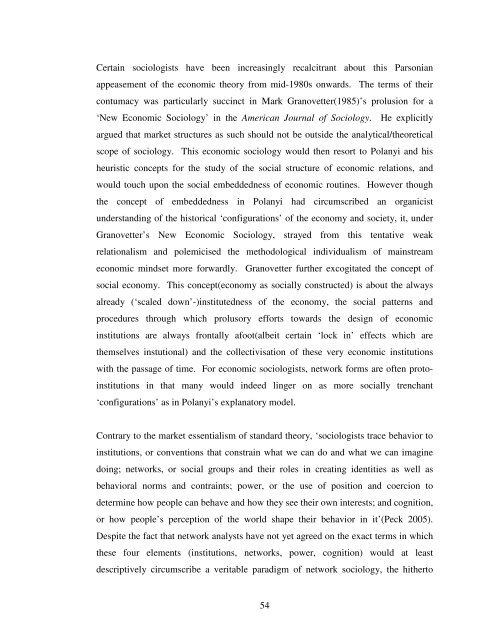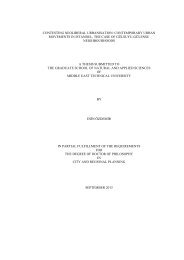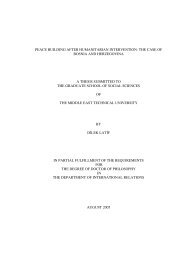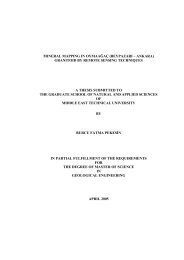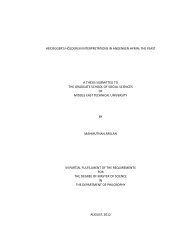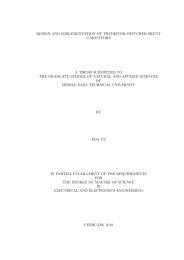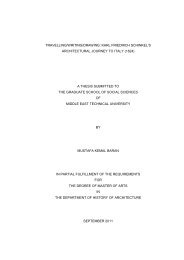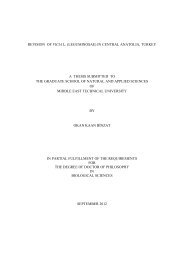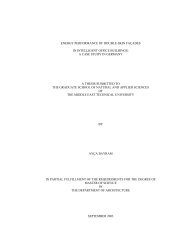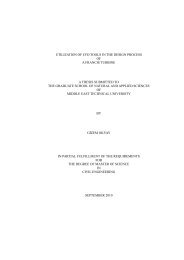View Original - Middle East Technical University
View Original - Middle East Technical University
View Original - Middle East Technical University
You also want an ePaper? Increase the reach of your titles
YUMPU automatically turns print PDFs into web optimized ePapers that Google loves.
Certain sociologists have been increasingly recalcitrant about this Parsonian<br />
appeasement of the economic theory from mid-1980s onwards. The terms of their<br />
contumacy was particularly succinct in Mark Granovetter(1985)’s prolusion for a<br />
‘New Economic Sociology’ in the American Journal of Sociology. He explicitly<br />
argued that market structures as such should not be outside the analytical/theoretical<br />
scope of sociology. This economic sociology would then resort to Polanyi and his<br />
heuristic concepts for the study of the social structure of economic relations, and<br />
would touch upon the social embeddedness of economic routines. However though<br />
the concept of embeddedness in Polanyi had circumscribed an organicist<br />
understanding of the historical ‘configurations’ of the economy and society, it, under<br />
Granovetter’s New Economic Sociology, strayed from this tentative weak<br />
relationalism and polemicised the methodological individualism of mainstream<br />
economic mindset more forwardly. Granovetter further excogitated the concept of<br />
social economy. This concept(economy as socially constructed) is about the always<br />
already (‘scaled down’-)institutedness of the economy, the social patterns and<br />
procedures through which prolusory efforts towards the design of economic<br />
institutions are always frontally afoot(albeit certain ‘lock in’ effects which are<br />
themselves instutional) and the collectivisation of these very economic institutions<br />
with the passage of time. For economic sociologists, network forms are often proto-<br />
institutions in that many would indeed linger on as more socially trenchant<br />
‘configurations’ as in Polanyi’s explanatory model.<br />
Contrary to the market essentialism of standard theory, ‘sociologists trace behavior to<br />
institutions, or conventions that constrain what we can do and what we can imagine<br />
doing; networks, or social groups and their roles in creating identities as well as<br />
behavioral norms and contraints; power, or the use of position and coercion to<br />
determine how people can behave and how they see their own interests; and cognition,<br />
or how people’s perception of the world shape their behavior in it’(Peck 2005).<br />
Despite the fact that network analysts have not yet agreed on the exact terms in which<br />
these four elements (institutions, networks, power, cognition) would at least<br />
descriptively circumscribe a veritable paradigm of network sociology, the hitherto<br />
54


